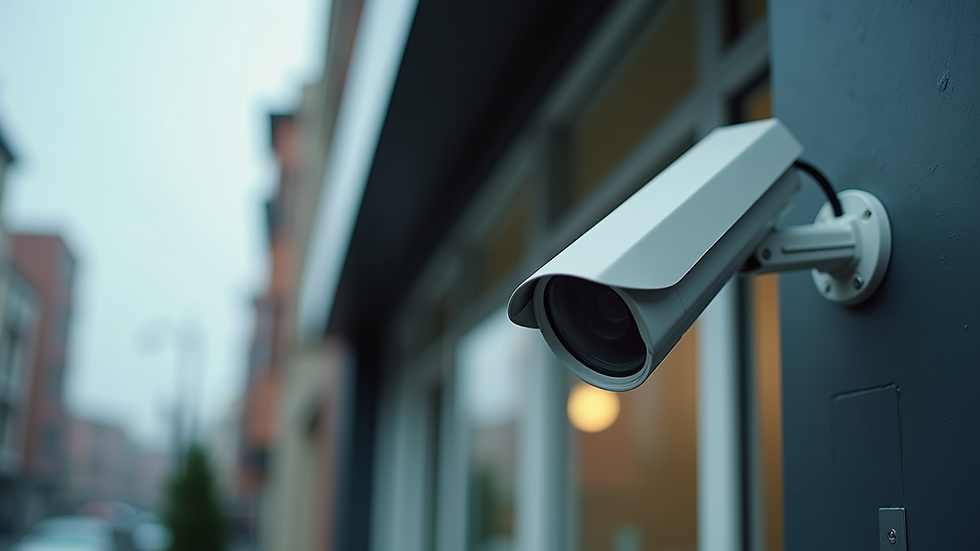Choosing the Optimal Electric Gate Materials for Unmatched Durability and Practicality
- GA Technical Ltd

- Jul 6, 2025
- 4 min read
When it comes to electric gates, making the right material choice is essential for ensuring long life, reliability, and performance. The variety of materials available can be overwhelming, but understanding the benefits and drawbacks of each can make your decision easier.

In this post, we will explore the most popular materials used for electric gates. We will explain their benefits regarding durability, weather resistance, and ease of use, helping you find what best fits your needs.
Understanding Electric Gate Materials
Before we dive deeper into specific materials, let's look at the main factors affecting your selection process: durability, weather resistance, and practicality.
A durable electric gate can handle daily use and extreme environmental conditions. Weather resistance is key; electric gates are exposed to diverse elements like rain, snow, and harsh sunlight. Practicality covers installation ease, maintenance needs, and overall functionality.
Armed with this knowledge, let's explore the materials commonly used in electric gate construction.
Steel: The Strong Contender
Steel is one of the most durable materials available for electric gates. Known for its exceptional strength, steel gates can provide high security. With the right coatings, they resist rust and corrosion, making them ideal for harsh climates.
Advantages of Steel Gates:
Longevity: Steel can last over 20 years with proper care, significantly longer than wooden gates, which may require replacement after just 10 years.
Security: A steel gate can deter unauthorized access, making it an excellent choice for high-security areas like warehouses and private properties.
Low Maintenance: Most steel gates only require repainting every 5 to 10 years to keep rust at bay.
Disadvantages of Steel Gates:
Weight: Heavy steel gates may require more powerful electric motors, increasing overall installation costs.
Heat Conductivity: Steel can reach high temperatures under direct sunlight, which may be uncomfortable to touch on hotter days.
Aluminum: The Lightweight Alternative
Aluminum is gaining popularity for electric gates because it is lightweight and rust-resistant. Its non-ferrous nature makes it suitable for humid or coastal conditions, where traditional metals may struggle.
Advantages of Aluminum Gates:
Lightweight: Weighing about one-third of steel, aluminum gates are easier to handle and install, saving on labor costs.
Corrosion Resistance: Aluminum doesn't rust, which is crucial for environments with high moisture levels, prolonging the gate's life.
Versatile Design: Aluminum is easily customized, enabling various finishes to match the look of any property.
Disadvantages of Aluminum Gates:
Security Limitations: While strong, aluminum gates may not offer the same protection as steel, making them less suitable for high-security areas.
Denting: Aluminum can dent more easily, potentially affecting its durability and visual appeal over time.
Wood: The Classic Choice
For many homeowners, wooden gates represent timeless beauty. They can provide a warm and welcoming entrance that enhances property aesthetics. However, wood requires significant maintenance and can suffer from weather-related issues.
Advantages of Wooden Gates:
Aesthetic Appeal: Natural wood exudes charm and warmth, making it a preferred choice for residential properties.
Customization: Wood can be crafted into unique designs, catering to individual style preferences.
Disadvantages of Wooden Gates:
Susceptibility to Weather: Wood can warp, crack, or rot when exposed to the elements, particularly in regions with snow or heavy rainfall.
Maintenance Required: Regular sealing and painting are necessary to protect wood, typically every 2 to 4 years, to prevent deterioration.
Vinyl: The Low-Maintenance Option
Vinyl gates are increasingly popular due to their practicality and low-maintenance requirements. Made from PVC, these gates can even imitate the look of wood while offering greater durability.
Advantages of Vinyl Gates:
Fading Resistance: Vinyl is highly resistant to UV rays, meaning colors will stay vibrant for years, reducing the need for frequent replacements.
Easy to Clean: Typically, a simple hose-down suffices to keep vinyl gates looking new.
Disadvantages of Vinyl Gates:
Limited Security: While durable, vinyl may not provide the same level of protection as steel or aluminum options.
Less Sturdy: Vinyl gates can struggle in high winds or other severe weather conditions.
Composite Materials: The Next Generation
Composite materials combine various benefits, creating a durable and visually appealing option. These materials often use recycled products, appealing to environmentally conscious consumers.
Advantages of Composite Gates:
Sustainable Option: Many composites incorporate recycled materials, making them an eco-friendly choice.
Weather Resistance: Composites can resist fading and cracking, similar to vinyl, providing lasting durability.
Disadvantages of Composite Gates:
Cost: High-quality composites can have a price tag 10 to 20% higher than traditional materials.
Limited Customization: While durable, design choices may not be as extensive as those found in wood or steel.
Practical Considerations for Gate Material Selection
While material choices are vital, practical considerations also play a crucial role. The installation environment should guide your decision. For example, electric gates installed in rural areas must withstand harsher weather conditions compared to those in urban settings.
Think about the gate's main function: Is it intended to serve as a decorative addition or as a secure barrier? This will influence whether you lean toward a heavier material for security or a lightweight option for design.
Final Thoughts
Selecting the right materials for electric gates involves weighing durability, weather resistance, and practicality. Steel and aluminum excel in durability and security, while wood offers aesthetic appeal. On the other hand, vinyl and composites deliver low-maintenance solutions but might sacrifice sturdiness.
By understanding your unique needs and the environmental conditions you face, you can make a wise choice for your electric gate.
Whether you desire a strong presence or an inviting entry, the right materials will ensure that your electric gate stands firm against the elements and lasts for years to come.





Comments